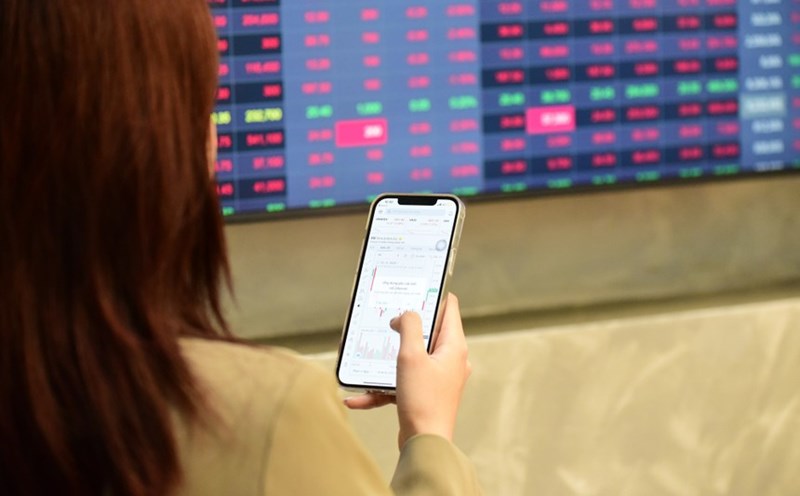Investors seem to still be cautious, even out-of-pocket cash flow has continued to increase, causing market liquidity to disappear.
The VN30 group fluctuated more strongly towards the end of the session, especially in some banking stocks when they extended their downward momentum, with TPB leading with a decrease of 3.1% to VND 18,800, HDB decreasing by 2.7% to VND 30,150. SSI followed when it lost 2.6% to VND38,000 and VJC decreased 2.5% to VND132,500.
On the contrary, VIC shares were the strong and almost the only support when they increased by 3.8% to VND 164,000, contributing more than 5.5 positive points to the VN-Index.
At the end of the trading session on September 26, the VN-Index decreased by 5.39 points, down to 1,660.7 points. Total trading volume reached more than 958.8 million units, worth VND 26,709.2 billion, down slightly in both volume and value compared to yesterday's session. Regarding foreign transactions, the group of foreign investors continued to net sell VND 2,159 billion in the whole market.
The rapid and unpredictable developments of the stock market since the beginning of the year and in recent trading sessions have made the investor community worried about the market outlook for the end of 2025, as well as in the coming year.
Meanwhile, for many analysts, the VN-Index is trading around 1,600 - 1,700 points, which is a neutral level, completely in line with the current context when listed company profits improve, not even fully reflecting the growth momentum of businesses in particular and the economy in general.
The index has slowed down but has not really adjusted, because after increasing by more than 30% since the beginning of the year, the new VN-Index is decreasing by about 3-4%. While with such an increase, a 15% adjustment is normal. Current developments only show the cautious psychology of investors before many news such as GDP growth figures for the third quarter or the upgrade story.
Dr. Nguyen Duy Phuong, Investment Director of DG Capital, expressed the view that from April to now, the forces controlling and influencing the liquidity of the Vietnamese stock market have come from the group of domestic institutional investors, while the proportion of foreign investors has not changed much. Notably, this group of domestic institutional investors only has a small proportion of self-employed securities companies, the majority of which belong to domestic funds and enterprises. This is a very positive signal and cash flow is expected to continue to stay in the market in the coming period.
According to Dr. Phuong, with a scenario with many positive factors, investors can completely expect stronger increases in the next 6 months. Firstly, market valuations are still below the 5-year average, while the prospects for GDP growth and profits of listed enterprises in the coming time are still positive.
Second, we are about to enter a period of liquidity and domestic exchange rate support thanks to the Fed's interest rate cut (three times) from now until the end of 2025. Third, the expectation of FTSE Russell upgrading to emerging market status in early October will attract strong foreign capital flows into the market. Fourth, a more systematic and drastic roadmap for the goal of upgrading to emerging market according to MSCI's criteria promises the next steps of reform for the performance of the Vietnamese stock market.












